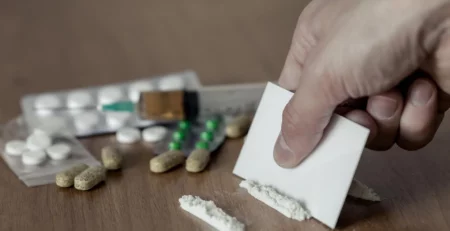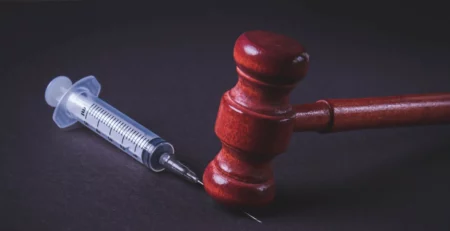A List of Character Defects: PDF and Guide
Identifying and Removing Character Defects in Recovery
You’ve probably heard the saying that the recovery process is all about progress, not perfection. That includes facing things about ourselves that we aren’t very proud of. When you’re working through a 12-Step program, you gain great insight into your strengths and shortcomings.
That’s where our list of character defects PDF and guide comes in. Our worksheets will help you recognize and name the traits that no longer serve you well, and guide you in making changes.
Icarus Las Vegas offers drug and alcohol addiction treatment programs that address not only the substance abuse but also the underlying cause of use. We dig deep to find root causes as individuals seek to become clean and sober again. In our experience, the process exposes the actual reason that someone reaches for the bottle.
For instance, dishonesty, impatience, or moodiness are frequently driven by unmanaged fear, rage, or trauma. Recovery requires addressing what lies beneath the surface.
We encourage you to continue reading if you’re ready to step outside your comfort zone and begin exploring what a life free of alcohol or drugs could look like. Our free downloadable PDFs will help you gain self-awareness as you take a moral inventory.
Alcoholics Anonymous Can Be Triggering (Ex: ‘Character Defects’)

The Alcoholics Anonymous Big Book outlines the entire 12-step journey in an easy-to-follow format. However, the book was first published in 1939, and it often employs language that feels outdated – or even offensive – to the modern ear. Discussions of character defects can be particularly triggering.
Keep in mind that the character flaws referred to in the program don’t refer to a permanent state of moral failing, but a fixable state that allows for personal growth and healing. In the context of AA, one admits powerlessness over alcohol use in Step One and acknowledges a Higher Power in Step Two. The most common character defects listed in Step Four typically develop as a result of the drinking itself.
Alcoholics Anonymous and Narcotics Anonymous also require you to submit to a Higher Power, or God as you understand the concept. It’s one of the shortcomings of AA and NA, leaving out those who are agnostic or non-believers who struggle with religious beliefs. (In that case, SMART Recovery is an excellent alternative.)
While Icarus Nevada disagrees with some language of the AA program, we still acknowledge that it has helped millions in moving forward after substance use. Our worksheets use language consistent with the Alcoholics Anonymous (or Narcotics Anonymous) program to help you make positive changes, rather than focusing on blame or shame.
Get Effective Detox and Rehab Options at Icarus
Our Worksheets Support You as You Make a Fearless Moral Inventory
Alcoholics Anonymous (and Narcotics Anonymous) challenges members to conduct a “searching and fearless moral inventory” of themselves in Step 4. The intent is to hold people accountable for the behaviors they’ve engaged in during active addiction. It can be a struggle to accept this responsibility, but it’s an important part of AA.
Each step of Alcoholics Anonymous and Narcotics Anonymous is progressive, with skills that overlap and build upon one another. Don’t skip any steps, even listing defects of character – a very uncomfortable process.
After you read about each step of our workbook, you’ll read the responses of ‘PJ,’ who had attended a recovery process at Icarus Nevada after experiencing a severe trauma – a violent assault and robbery that caused her addiction.
After leaving treatment, PJ realized that she still struggled with certain character defects. She has since shared with us that, after treatment, she had the tools to recognize that she’d been on the verge of a relapse and sought common-sense 12-Step support to help her continue to focus on recovery.
Worksheet 1: List of Common Character Defects

On the first page, we provide a list of ten of the most common character flaws for you to rate:
- Anger
- Fear
- Dishonesty
- Pride
- Control
- Judgment
- Self-pity
- Jealousy
- Perfectionism
- Resentment
Consider whether you’ve encountered any of these character defects, then rate them according to how often they’ve impacted you: Rarely, Sometimes, Often. Be honest – you’ll refer to this list of character defects throughout the remaining worksheets.
Example: List of Character Defects
Here’s how PJ ranked the defects that continued to hold her back from personal growth:
Rarely: proud, control, jealousy, judging others; sometimes: anger, dishonesty, perfectionism; often: fear, self-pity, resentment
Worksheet 2: Reflecting on the Defects of Character

Next, you’ll review your list of character defects and consider which have caused broken trust of loved ones, low self-esteem or self-worth, or other consequences. Most choose any character flaws they rated as “often” or “sometimes.”
The reflections require honesty and self-awareness, even when looking at the past becomes a struggle. Print out one “Character Defects Self-reflections” sheet for each character defect you must overcome. This sheet helps you:
- Name the character flaw
- Explore what triggers it
- Assess its consequences
- Consider what strength you can build instead
Once you have a sense of how the list of character defects impacts your life, you become more ready to make permanent positive changes in your behavior.
Example: Focusing on the Most Prevalent Character Flaws
PJ looked at her first sheet and excluded four traits – she didn’t experience those defects often. She printed out six reflection worksheets and completed them, being open and honest with herself about her addictions.
PJ also gave great thought to her use triggers as well as the consequences that came from her past experiences with addiction. She said this about her fear:
I’m fearful because of my past trauma. Certain sounds trigger me – I still have occasional flashbacks where I hear my own screams. This has caused me to avoid activities that may trigger these emotions, even if that means isolating myself from people who love and support me. Instead of avoiding these things, I should try to find new activities to enjoy with a trusted person. I’d feel less alone.
Worksheet 3: Journaling About Your Character Flaws

Each person is unique, but some can overcome their less significant character flaws by releasing them to their Higher Power after reflecting on them. You’ll next consider the top 3 to 5 character defects you must handle, and print one journal page per flaw.
Journaling helps you delve deeper into these traits, providing a clearer understanding of how they may influence your ability to heal and lead a fulfilling life.
The journal asks you to:
- Examine a character defect you experience “often”
- Describe the emotions or reactions when you interact with it
- Share your thoughts on better responses in the future
Once you’ve decided to admit your character defects, you’ll understand how to allow the Higher Power to shape your behavior in the future.
Example: Journal Writing as a Healthy Recovery Tool
After reflecting, PJ still needed to address three toxic behaviors. Here’s what she wrote about one of her behaviors:
I often feel sorry for myself – I didn’t deserve to experience such deep trauma. No matter how many times I address it, I sometimes still find myself locked in my apartment. Staying home should make me feel safer, but I usually feel worse afterward. But I am making myself stronger by attending 12-Step every week, working every day, and going to my outpatient appointments at Icarus Nevada.
Worksheet 4: Letting Go and Releasing Anger, Fear, or Pride to a Higher Power

Alcoholics Anonymous and Narcotics Anonymous ultimately ask members to turn their character defects over to a Higher Power. This means releasing their own desires and accepting God’s will.
This ability to turn over a problem doesn’t mean the character defect goes away – it means trusting that God will help you change what you cannot overcome on your own. On this worksheet, you will:
- Write a statement turning the named character defect over to the Higher Power
You create more self-awareness of your thoughts by letting go of your character defects in writing.
Example: Letting Go and Moving on in the 12-Step Program
PJ is ready to let go of her character flaws and move on in her 12-Step program. She writes a statement of release:
God, I turn my trauma over to your healing hands. Help me release my anxiety and fears.
How AA and NA Integrate with Addiction Treatment Programs

Some may mistakenly think that attending formal treatment versus a 12-step program means making an either/or decision.
But the truth is that both methods can help a person experience tremendous personal growth and contribute to long-term recovery. Here’s how they complement one another:
12 Step Programs Offer Structured Support after Clinical Recovery Programs
After a person has completed detox and treatment, AA or NA meetings provide a place to stay accountable. The personal growth journey continues among peers who understand the complexities of addiction.
Building a Safe, Sober Community
People sometimes feel alone after leaving recovery. Attending 12-step meetings means having a judgment-free space to discuss any remaining addiction or recovery challenges.
Recovery Meetings Encourage Long-term Sobriety
Addiction is a chronic disease – treatable and controllable, with a good prognosis with the proper attitude about recovery. AA and NA give people with addiction access to lifelong coping tools to support long-term recovery.
Up To 100% of Rehab Costs Covered By Insurance – Call Now!
Find Recovery at Addiction at Icarus Nevada: Starting Today!
Our worksheets can help you address your innermost thoughts and toxic traits. While 12-step programs can be helpful, many still need the professional guidance of a recovery center.
Icarus Nevada offers inpatient and outpatient programs to address a range of client needs, with individualized programs typically covered by insurance.
There’s no reason to wait another day – call us today to learn about same-day admissions.











